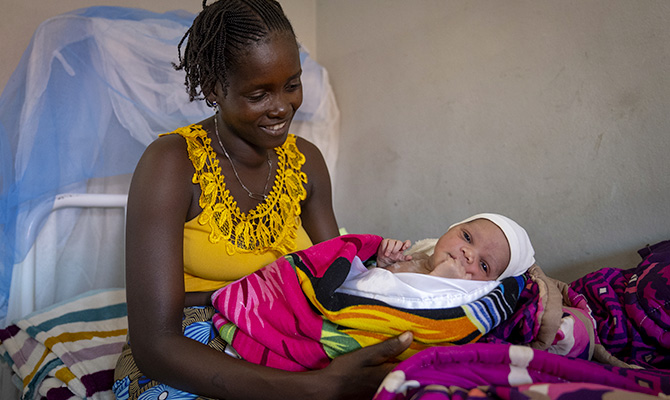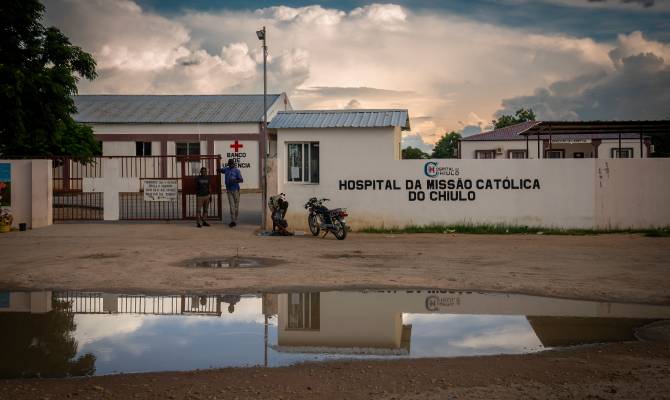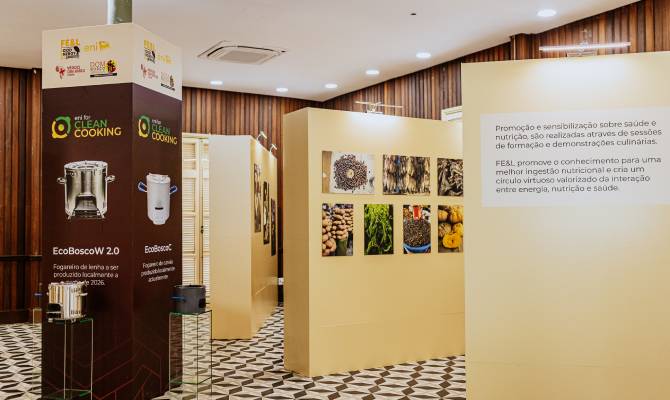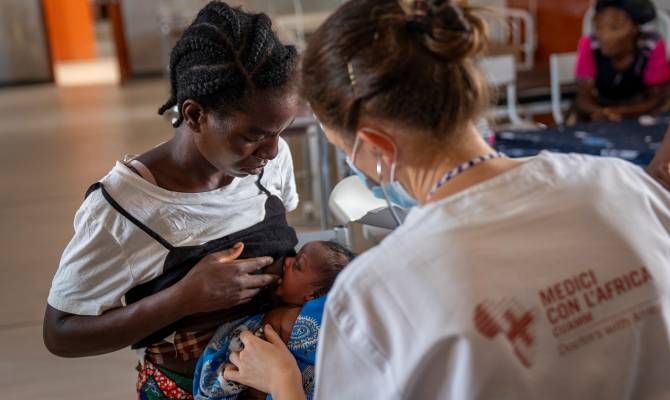«That day had been particularly intense, and to be honest, so were the previous ones. One postpartum hemorrhage after another, two emergency hysterectomies within 72 hours to save the lives of two young women aged 24 and 28, there hadn’t been a single moment to catch a breath».
Matilde Lusiani is still emotional when she recounts the birth she assisted at Chiulo hospital, Angola. She is an Italian midwife serving in this little hospital in Cunene Region, a facility of 234 beds that serves a population of approximately 306,550 people. Working at Chiulo hospital is challenging: the hospital has essential equipment and basic goods like running water is not something people take for granted here.
«The biggest challenge – said Matilde, – is facing the fact that we have nothing to work with. You constantly wonder “What can I do with this?” and the answer is nothing. It is frustrating and you feel powerless. But some other days you manage to do “everything with the nothing you have”. It was around 5 pm; I had just arrived home and was taking care of some paperwork when a girl came in a hurry, completely out of breath. I was alone because my colleagues were dealing with a urgent vacuum-assisted birth. As the girl arrived, I soon realized that was a urgent matter: a woman was giving birth outside the hospital. There was no time to get her to the delivery room. So, I grab a pair of gloves, and run after the girl. I run toward the church, about 200 meters from the hospital, right in front of the police station. The woman, squatting under a tree, was giving birth. Chickens were grazing nearby and motorcycles passing by. Beneath her, only a dirty cloth. When I arrived, I noticed the baby’s head was already out. It only took a second push to have the baby in my hands. I used the glove elastic to clamp the umbilical cord and cut it with a pair of kids’-friendly small round-tipped scissors. I had them in my coat pocket, the previous resident left them home before moving out. I don’t think I’ll ever take them out of my pocket.” Right after the delivery I sought help from a police officers to get a stretcher, also a nurse came to help as she understood we needed help».
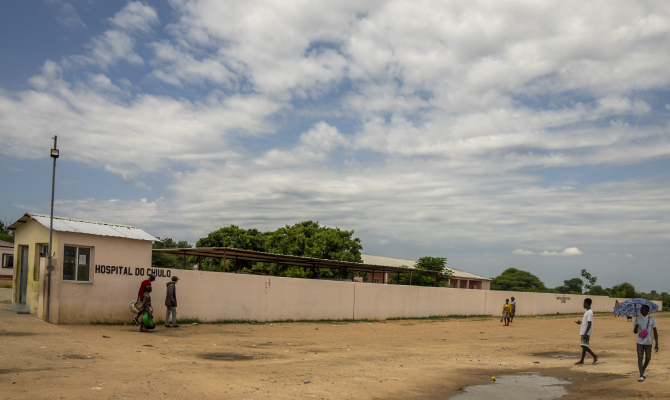
Matilde said the baby was still covered in blood and dirt, when she was holding her in the arms waiting for the mother to be places on the stretcher. During the short, breathless run back to the hospital, she never stopped massaging the mother’s uterus to avoid a hemorrhage.
Kalule, that’s the woman’s name, is now doing well as is her little girl, who doesn’t have a name yet. It is in fact a common habit in many part of the Africa region to name newborns only when parents are sure they are safe. Kalule is around 30 years old, she left 4 kids at home and walked a long way to reach the hospital. Despite arriving late, things sorted out well for her and the baby but unfortunately, not all the stories have an happy ending.
To date, maternal mortality rate remains high in Angola with 222 deaths in 100.000 live births. Distance to health facilities, poor access to assisted birth and lack of qualified personnel contribute to mantaining the rate extremely high. Cost-effective solutions like maternal waiting homes built by CUAMM at Chiulo hospital are paramount to ensure women a shelter in the last phase of their pregnancy.
«I will never forget this feeling: the emotion and adrenaline I experienced while witnessing the strength and courage of a woman giving birth. Altough challenging, it is by living those moments that we recognize the value and impact of our work».
DONATE NOW A SAFE AND ASSISTED DELIVERY

